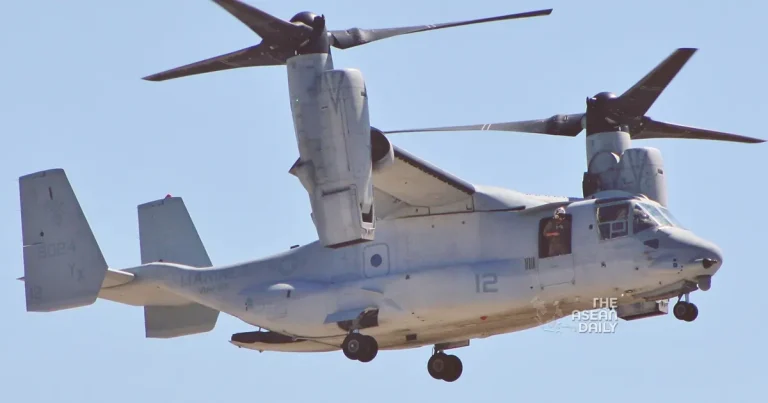7-12-2023 (WASHINGTON) The U.S. military has taken the unprecedented step of grounding its entire fleet of Osprey V-22 helicopters, a week after a crash off the coast of Japan claimed the lives of eight Air Force Special Operations Command service members.
Following a preliminary investigation that pointed to a materiel failure, indicating an issue with the aircraft rather than human error, the Air Force, Navy, and Marine Corps collectively grounded hundreds of Ospreys. This move raises concerns about the safety of the Osprey, a hybrid aircraft with a helicopter takeoff and landing capability and airplane-like forward propeller rotation during flight.
Lt. Gen. Tony Bauernfeind, head of Air Force Special Operations Command, ordered the standdown “to mitigate risk while the investigation continues,” stating that a potential materiel failure caused the mishap, but the root cause remains unknown.
Naval Air Systems Command, responsible for Marine Corps and Navy Osprey variants, also issued a grounding notice. The decision to ground the Osprey fleet is expected to persist until the investigation determines the cause of the crash and provides recommendations for the fleet’s safe return to operations.
The Osprey, in service since 2007, has faced safety concerns due to its unique design and a history of accidents. The recent crash off Japan has renewed focus on the aircraft’s safety record, with attention on a longstanding mechanical issue related to the clutch. Questions have arisen about whether all Osprey components meet safety specifications.
A fatal 2022 Osprey crash was attributed to a clutch failure, highlighting ongoing challenges in the program. The Marines’ report on the crash warned that without improvements to flight control software, drivetrain component material strength, and robust inspection requirements, preventing future incidents is impossible.
The Osprey fleet includes 51 operated by Air Force Special Operations Command, approximately 400 in service with the U.S. Marine Corps, and 27 with the U.S. Navy. With over 50 troop fatalities linked to Osprey incidents in the past 20 months, concerns about the aircraft’s safety persist, making the recent grounding a significant step to address potential risks and ensure the well-being of military personnel.




